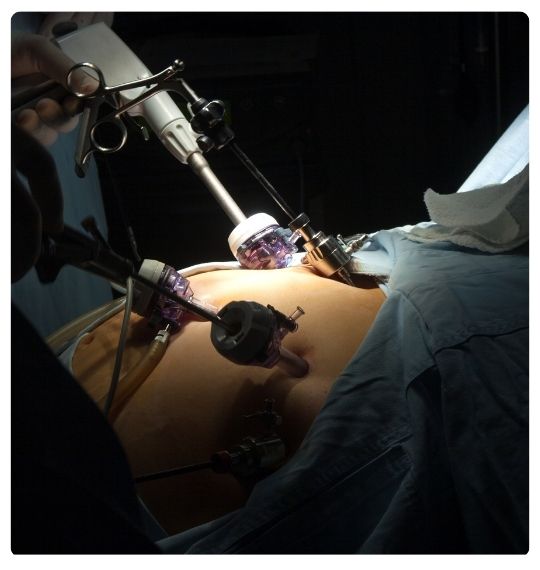
Gastric bypass (Roux-en-Y) procedure can help patients, who deal with obesity, lose weight and improve their general health. It involves reducing the stomach size and changing the digestive system that leads to decreased food intake and alterations in nutrient absorption in the small intestine.
Your surgeon may suggest a gastric bypass surgery if you have;
This procedure has been used for 20+ years and is well-known for its effectiveness for Class III obesity. It reduces the absorption of carbohydrate and fatty foods in the intestines. It was standardized at the Obesity and Metabolic Surgery Consensus in 2001.
Can be performed in two ways: Open and Laparoscopic




Turkey is a country that has made progress in weight loss techniques as it has developed in all aesthetic procedures. It is an ideal location for you if you want to solve your excess weight problems with experienced and well-trained surgeons and in affordable clinics. If you would like to receive a quality treatment at economical prices -mostly due to the exchange rate difference- we welcome you to Turkey.
When you are a patient receiving treatment at a prestigious clinic in Turkey, you will go through the following stages:
During this time, you will be fed according to the nutrition program that was prepared in the hospital.
Gastric bypass cost in Turkey can vary depending on the clinic, location, surgeon, difficulty of your surgery, chosen gastric bypass technique. On average, the amount varies between €2600 to €3200. It may vary depending on the package. Typically, an average package includes:


There are 5 main reasons why a gastric bypass surgery is cheaper in Turkey:
Gastric bypass procedures are “a group of similar operations” used to treat morbid obesity. Here are the terms related with it:
The excessive accumulation of excess weight in the body in the form of fatty tissue, leading to serious health problems.
A general term that encompasses not only gastric bypass but all other surgical treatments for morbid obesity.
Beyond BMI, you may also be eligible because of the mental or physical impact of obesity. If obesity has led to serious health problems, this can lead to candidacy. In general, the following diseases are reasons for surgery:

If you are wondering “How long does gastric bypass take?”, there are the steps:
You have to meet the following conditions to be eligible for gastric bypass surgery:
Your body weight has to be 100 pounds (45 kg) above your ideal weight.
It is greater than 40 or greater than 35 with obesity-related medical complications such as:
You have a history of attempting weight loss through diets and exercise programs.
No evidence of alcoholism, drug addiction or major psychiatric disorder.
Such as age and overall health will also be assessed by surgeons to determine whether the treatment is appropriate for you.
Before the surgery, it is good to know the following:
After gastric bypass surgery, there are several important things to know:
1. Just like the before surgery, you need to follow the recommended diet plan after it, as well. Focus on protein rich foods, avoid sugary or high fats.
2. Your body may need some nutritional supplements; including vitamins and mineral supplements. Typically, they are: Iron, Calcium, Vitamin B12, Vitamin D.
3. Be careful about fluid intake. On average, men should target about 15 cups of fluid a day and for women; 11 cups a day.
4. Your healthcare team will advise you to gradually increase your physical activities.
5. Attend all follow-up appointments with your healthcare provider.
6. Inform your healthcare team about all medications you are taking.
7. Pay attention to your body’s signals, you can feel hunger or fullness. Get to know and listen to yourself. [Please note: Eating too fast or too much can also lead to nausea or vomiting.]
As with all other bariatric surgeries, there are various advantages and disadvantages of having gastric bypass surgery in Turkey.

Those are the risks of gastric bypass surgery:
(The reasons for complications also vary; they may be patient- or surgeon-induced.)
If you are between the ages of 16 and 70, you can have this surgery as long as you meet the necessary conditions like BMI range, health conditions, etc.
Approximately 2 months after, you can start eating as usual. At every stage, be sure to drink the required quantity of liquids per day to ward off dehydration.
According to a scientific study, there is a positive correlation between nonsurgical weight loss attempts with life expectancy for both genders. However, there is no specific information for gastric bypass surgery.
If you’ve just had gastric bypass, please avoid caffeine for at least 2 months until you have fully recovered. Stay away from these:
After gastric bypass, some patients may occasionally experience this syndrome. It’s a set of complaints that include
Among the things to do after gastric banding surgery in Istanbul, you can find the following suggestions:

100% confidential consultation with our medical experts
WhatsApp us